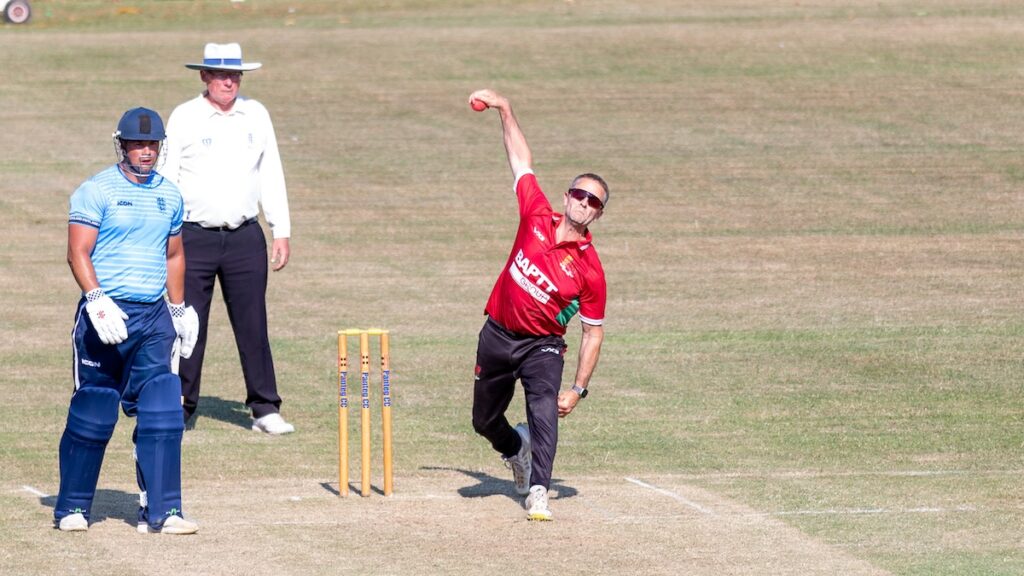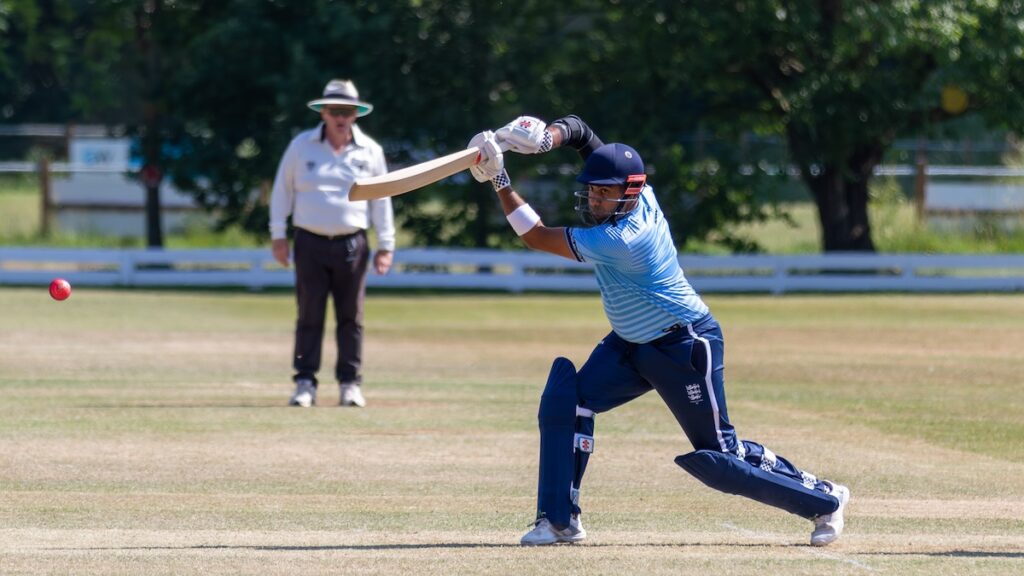Cricket is more than just a game—it’s a test of skill, strategy, and mental fortitude.
From mastering the perfect leg-break to crafting a match-winning innings, every cricketer aspires to reach the pinnacle of their abilities.
But even the greatest players in the sport’s history didn’t get there alone.
Behind every cricketing legend is a coach who helped shape their journey, offering guidance, mentorship, and the occasional push when needed.
Take Shane Warne, for instance, widely regarded as one of the greatest leg-spinners of all time. His rise to cricketing stardom wasn’t just the result of raw talent.
Warne’s career was profoundly influenced by his coach and mentor, Terry Jenner. Jenner, a former cricketer, played a pivotal role in honing Warne’s skills, helping him refine his leg-spin technique and develop the mental toughness required to dominate at the highest level.
Warne’s partnership with Jenner is a testament to the transformative power of coaching in cricket.
Like Warne, many aspiring cricketers can benefit immensely from the guidance of a skilled coach. A coach does more than teach you how to play—they help you unlock your potential, develop a winning mindset, and navigate the challenges of the sport.
Whether you’re a budding player looking to break into professional cricket or a seasoned athlete aiming to refine your skills, hiring a cricket coach can catalyse your success.
In this blog, we’ll explore the top benefits of hiring a cricket coach: how they enhance performance, foster personal and social development, build psychological resilience, and create a strong, supportive coach-athlete relationship. J
Just as Shane Warne had Terry Jenner, the right coach could shape your journey to cricketing excellence.
Table of Contents
1. Enhanced Performance

In cricket, performance is a combination of technical prowess and mental fortitude.
While natural talent plays a role, the guidance of a skilled coach can transform potential into consistent, high-level performance.
A cricket coach’s role in enhancing performance is honing technical skills and building psychological strength.
1.1 Technical Mastery

Cricket is a sport of fine margins, where a slight adjustment in technique can be the difference between success and failure.
This is where the expertise of a cricket coach becomes invaluable.
Coaches bring a wealth of knowledge and experience that can help players refine their batting, bowling, and fielding techniques to perform at their best.
Research supports the significant role that coaches play in technical skill development.
According to a study by Khan et al. (2021), athletes who receive targeted coaching demonstrate marked improvements in their technical abilities, particularly when training programs are customised to the individual’s needs.
The study emphasises that athletes with personalised coaching can better refine their skills and perform consistently under pressure.
Customised training drills are a critical component of technical mastery.
Unlike generic practice sessions, these drills are designed specifically for the individual’s needs, targeting areas that require improvement.
For instance, a coach might set up a fielding drill that places a player under pressure, mimicking the stress of a match situation, or a batting drill that focuses on countering a particular type of delivery.
This personalised approach ensures that every practice session is purposeful and aligned with the player’s development goals.
1.2 Psychological Conditioning

Cricket is as much a mental game as it is a physical one.
The pressures of competitive cricket—the expectation to perform, the challenge of maintaining focus over long periods, or the ability to bounce back from setbacks—require a strong mental foundation.
This is where psychological conditioning, guided by a coach, plays a crucial role.
Research highlights the importance of psychological conditioning in athletic performance.
Fransen et al. (2018) found that coaches providing competence support and feedback significantly enhance athletes’ intrinsic motivation and mental resilience.
These athletes reported higher confidence levels and were better equipped to manage the emotional demands of competitive sports.
- Mental Toughness: Building mental toughness is one key area a coach can significantly impact. This involves training players to remain focused and composed, even in high-pressure situations. For example, a coach might work with a batsman to develop the ability to concentrate for long periods, helping them resist the urge to play rash shots under pressure.
- Emotional Resilience: Handling setbacks is another critical aspect of psychological conditioning. Cricket is a sport where failures are inevitable—getting out cheaply or being hit for runs as a bowler. A coach helps players develop the emotional resilience needed to cope with these setbacks, teaching them to learn from their mistakes rather than being discouraged by them.
- Motivation: Sustaining motivation over a long season can be challenging. Coaches motivate players by setting achievable goals, providing regular feedback, and maintaining a positive environment. For instance, a coach might work with a player to set short-term goals, such as improving a specific aspect of their game within a few weeks, which can help maintain focus and drive.
Psychological strategies employed by coaches often include visualisation techniques, mindfulness practices, and mental rehearsals.
These strategies help players prepare mentally for matches, enabling them to visualise success and stay calm under pressure.
By incorporating these techniques into regular training, coaches ensure that players are not only physically prepared but also mentally equipped to face the challenges of competitive cricket.
2. Personal and Social Development

Beyond enhancing physical performance, a cricket coach plays a vital role in a player’s personal and social development.
Coaching helps athletes excel both on the field and as individuals, developing essential life skills such as communication, teamwork, and emotional resilience.
2.1 Social Skills

Cricket is a team sport where success hinges on effective communication and collaboration.
A coach helps players develop these critical social skills, ensuring they can function well in a team environment.
- Communication: Coaches teach players how to communicate effectively on and off the field. This includes clear and concise communication during matches, such as signalling field placements or coordinating with teammates on running between the wickets. Additionally, coaches work on improving interpersonal communication, helping players to articulate their thoughts and feedback constructively.
- Teamwork: A cricket coach fosters a sense of camaraderie and teamwork among players. By encouraging collaboration and mutual support, coaches help players understand the importance of working together towards a common goal. This includes understanding and accepting different roles within the team, whether it’s being a key batsman, a support bowler, or a specialist fielder.
Research by MacDonald et al. (2010) highlights the significant role coaches play in the social development of young athletes.
The study found that athletes with trained coaches reported higher social skills, including better teamwork and communication, than those with untrained coaches. This research underscores the importance of having a skilled coach who focuses on the technical aspects of the game and the interpersonal dynamics crucial for team success.
Example:
Consider a young cricketer who joins a new team. Initially shy and unsure of how to fit in, the player might struggle to communicate with teammates or understand team dynamics.
A coach facilitates integration by encouraging players to participate in team discussions, offering leadership opportunities, and providing constructive feedback on their communication skills.
Over time, these players become more confident in expressing themselves, contributing effectively to the team’s strategy and building strong bonds with teammates.
2.2 Emotional Resilience
Emotional Resilience is the ability to adapt to stress, adversity, or trauma. It’s about maintaining emotional balance, bouncing back from setbacks, and continuing to move forward with strength and determination, no matter the challenges.
Like any sport, cricket involves its fair share of challenges and setbacks.
Emotional resilience is crucial, whether dealing with a string of poor performances, recovering from injuries, or handling the pressure of high-stakes matches.
A cricket coach plays a pivotal role in helping players build this resilience.
- Handling Setbacks: Coaches help players develop the ability to cope with failure and setbacks. Through mentorship and support, they teach players to view setbacks not as failures but as opportunities for growth. This mindset shift is essential in a sport where even the best players face challenges.
- Building Self-Confidence: Confidence is key to success in cricket. A coach helps players build self-confidence by setting achievable goals, celebrating small wins, and providing positive reinforcement. This confidence allows players to take risks, make decisions, and perform under pressure.
Research from Fransen et al. (2018) supports the role of coaching in fostering emotional resilience.
The study found that coaches who provide competence support and motivational feedback significantly enhance an athlete’s emotional management and resilience.
These athletes are better equipped to handle the psychological demands of competitive sports, maintaining their composure and confidence even in difficult situations.
Example:
A cricketer facing a prolonged slump in form might begin to doubt their abilities, leading to a loss of confidence.
A coach intervenes by focusing on the player’s strengths, gradually setting short-term goals to rebuild their confidence, and providing continuous encouragement.
Over time, with the coach’s guidance, the player regains their confidence, performs better, and learns to manage future setbacks more effectively.
3. Psychological Benefits

The psychological dimension of cricket is as crucial as the physical and technical aspects.
A well-rounded cricket coach improves players’ technical abilities and nurtures their psychological well-being.
This involves fostering a sense of competence, boosting self-esteem, and helping players tap into the intrinsic motivation that drives continuous improvement.
3.1 Competence Satisfaction

One of the most rewarding aspects of being coached is the sense of mastery that comes from achieving technical milestones.
Whether perfecting a new bowling variation or consistently executing a new shot, these accomplishments contribute significantly to a player’s competence satisfaction.
- Sense of Mastery: When players reach these technical milestones under the guidance of a coach, they experience a profound sense of achievement. This feeling of mastery is not just about performing well but about the internal satisfaction that comes from knowing that hard work and dedication have paid off. A coach plays a critical role in this process by setting realistic, challenging goals and providing the necessary support and instruction to achieve them.
- Impact on Self-Esteem: Positive reinforcement and motivational feedback from a coach are key in boosting a player’s self-esteem. When a coach acknowledges a player’s progress, it reinforces the player’s belief in their abilities. This is especially important in cricket, where confidence is directly linked to performance. A coach’s encouragement helps players internalize their successes, leading to a more confident and self-assured mindset.
Research by Fransen et al. (2018) supports the idea that competence support from coaches significantly enhances athletes’ satisfaction with their performance.
The study found that athletes who receive consistent positive reinforcement and feedback from their coaches experience higher levels of competence satisfaction, boosting their overall psychological well-being and performance on the field.
Example: Imagine a young cricketer struggling to perfect their cover drive. Under the coach’s guidance, the player works on their technique and starts hitting the shot more effectively. The coach provides continuous feedback, highlighting the player’s improvements and offering encouragement. As the players master the cover drive, they feel a sense of accomplishment and gain confidence in improving other areas of their game, enhancing their overall self-esteem.

Have You Downloaded Our FREE 7-Day Gym Workout Plan?
Grab your complete step-by-step 7-day gym workout plan for cricketers today. There will be no more Guesswork. Just follow the plan and get results.
3.2 Intrinsic Motivation
Intrinsic Motivation is the internal drive to pursue goals or activities for personal satisfaction and fulfillment, rather than external rewards. It’s fueled by a genuine passion for the task at hand, leading to sustained effort and long-term success.
While external rewards and recognition are essential, intrinsic motivation—the internal desire to improve and excel—plays a crucial role in sustaining long-term success in cricket.
Coaches are instrumental in helping players discover and nurture this intrinsic motivation.
- Tapping into Internal Motivation: Coaches help players identify what drives them to succeed. This could be a love for the game, a desire to improve continually, or the personal satisfaction of mastering new skills. By understanding and cultivating these internal motivators, coaches help players develop a passion for the game beyond external accolades.
- Long-Term Benefits of Self-Driven Athletes: Intrinsically motivated players are more likely to continue pushing themselves, even when external rewards are not immediately apparent. This self-driven approach leads to continuous improvement and sustained performance over time. Coaches play a pivotal role in fostering this mindset by encouraging players to set personal goals, focus on self-improvement, and take pride in their progress, regardless of the outcomes in individual matches.
The importance of intrinsic motivation in sports is highlighted in the research by Fransen et al. (2018), which found that athletes with intrinsic solid motivation supported by their coaches were more likely to achieve long-term success.
These athletes were more resilient, maintained a higher level of performance, and were less reliant on external validation, making them more consistent and committed to their sport.
Example:
Consider a cricketer motivated by the challenge of continuously improving their bowling technique. Their coach recognizes this internal drive and sets up a series of progressively challenging drills, each designed to test and enhance different aspects of the player’s bowling.
As the player meets these challenges, they experience a deep sense of satisfaction, not from external praise, but from knowing that they are improving and mastering their craft. This intrinsic motivation keeps the player engaged and dedicated, ensuring they focus on long-term growth rather than short-term results.
4. Quality of Coach-Athlete Relationship

The relationship between a coach and an athlete is foundational to the success of any coaching program.
A solid coach-athlete relationship, built on trust, respect, and support, is crucial for effective communication, player development, and long-term success in cricket.
This section explores the importance of these elements and how they contribute to a positive and productive coaching experience.
4.1 Trust and Respect
Trust and respect are the cornerstones of any successful coach-athlete relationship.
Without these elements, even the most technically skilled coach will struggle to guide and influence their players effectively.
- Importance of Trust and Respect: Trust is essential in allowing players to be open to feedback and willing to take the necessary risks to improve their game. When players trust their coach, they are more likely to embrace new techniques, try different strategies, and push beyond their comfort zones. Similarly, respect forms the foundation of mutual understanding and collaboration. Students who respect their coach are more likely to value their insights, adhere to their guidance, and put in the effort required to meet the coach’s expectations.
- Impact on Communication and Development: Effective communication relies heavily on trust and respect. When these elements are present, players feel comfortable expressing their concerns, asking questions, and discussing their goals with their coach. This open line of communication allows for personalized feedback, targeted advice, and a collaborative approach to development. As a result, players are more likely to experience consistent improvement and achieve their full potential.
Research by Jowett (2017) underscores the significance of a positive coach-athlete relationship, particularly regarding trust and respect.
The study found that athletes with strong, trusting relationships with their coaches reported higher motivation, satisfaction, and overall performance.
The research highlights that these relationships are beneficial and essential for creating a productive coaching environment where athletes can thrive.
Example:
Imagine a scenario where a cricketer struggles with a specific aspect of their game, such as facing fast bowlers.
If the players trust and respect their coach, they will be more willing to discuss their difficulties openly and follow the coach’s tailored advice on improving.
The coach, in turn, can provide focused guidance, knowing that the player is receptive to their input.
This mutual trust and respect lead to effective communication, enabling the players to overcome their challenges and grow as cricketers.
4.2 Supportive Environment

A supportive environment is crucial for players to feel safe taking risks, making mistakes, and learning from them.
Coaches play a key role in creating this environment, which is essential for both personal and athletic development.
- Creating a Safe Space: A coach’s ability to create a safe and supportive space is vital for player development. In such an environment, players are encouraged to express themselves, experiment with new techniques, and develop skills without fear of harsh criticism or failure. This safe space fosters creativity, resilience, and a growth mindset, which is crucial for long-term success in cricket.
- Role of Mentorship: Beyond technical instruction, coaches often serve as mentors who provide constructive criticism and emotional support. Constructive criticism helps players identify areas for improvement in a way that is encouraging rather than discouraging. On the other hand, emotional support helps players navigate the emotional highs and lows of the sport, such as dealing with losses, injuries, or dips in form. A mentor who provides this dual support is instrumental in building well-rounded, mentally tough, and confident athletes.
The importance of a supportive coaching environment is further emphasized in the study by MacDonald et al. (2010), which found that athletes who felt supported by their coaches were more likely to develop the emotional resilience needed to succeed in sports.
The study also noted that these athletes had better social integration within their teams and reported higher overall satisfaction with their sporting experience.
Example:
Consider a young player who has just got into the first team and feels overwhelmed by the expectations.
A supportive coach might notice the player’s anxiety and take the time to provide reassurance while also offering specific, actionable feedback on how to improve.
The coach might say, “I see you’re struggling with your confidence in the field, but I’ve noticed your quick reflexes. Let’s focus on building on that strength.”
This approach addresses the technical aspects and supports the player emotionally, helping them feel more comfortable and confident in their new environment.
5. Leadership and Development

Cricket coaching goes beyond refining physical skills and improving performance; it also plays a significant role in players’ personal development.
Through the guidance of a skilled coach, players become better athletes and grow into well-rounded individuals who possess essential life skills and leadership qualities.
5.1 Life Skills
Cricket coaching is a powerful tool for instilling vital life skills beyond the cricket field.
These skills are essential for personal growth and success in all areas of life, making the role of a coach in a player’s development even more critical.
- Discipline: Cricket, like any sport, requires discipline—whether it’s sticking to a rigorous training schedule, maintaining focus during long matches, or adhering to the game’s rules. Coaches instil this discipline by setting high standards for their players and holding them accountable to those standards. This discipline helps players succeed in cricket and translates into other aspects of their lives, such as academics, work, and personal relationships.
- Time Management: Balancing training, matches, and personal life requires excellent time management skills. Coaches help players develop these skills by emphasizing the importance of planning and prioritisation. For instance, a coach might work with a player to create a weekly schedule that balances practice sessions with rest, study, and social time. This skill is invaluable in managing a cricketing career and managing life’s various demands effectively.
- Resilience: Resilience is the ability to bounce back from setbacks and keep pushing forward despite challenges. With its inherent ups and downs, cricket is a perfect arena for developing this quality. Coaches play a crucial role in building resilience by encouraging players to learn from their mistakes, maintain a positive attitude in the face of adversity, and keep striving for improvement. This resilience is a life skill that helps individuals navigate the inevitable challenges they will face outside of sports.
Research by Solomon (2010) highlights the broader impact of sports coaching on the development of life skills.
The study found that athletes who received effective coaching were better equipped to handle life’s challenges, demonstrating higher levels of discipline, time management, and resilience in their sporting and personal lives.
Example:
Consider a young cricketer who is struggling to balance schoolwork and cricket training.
A coach might sit down with the players to help them organise their time more effectively, perhaps by setting specific times for study and practice.
Over time, the player learns how to manage their responsibilities efficiently, which will serve them well in their future career, regardless of whether they continue in sports or pursue other paths.
5.2 Autonomy and Decision-Making

One key goal of coaching is to develop players who are not only skilled but also capable of thinking independently and making strategic decisions on the field.
Coaches play a vital role in fostering this autonomy and encouraging players to take ownership of their game.
- Encouraging Independent Thinking: A good coach doesn’t just tell players what to do; they encourage players to think for themselves. This might involve asking players to analyse their performance, decide their training focus, or develop strategies for approaching different match situations. By doing so, coaches help players become more self-reliant and confident in their abilities to make the right decisions during critical moments in a game.
- Fostering Strategic Decision-Making: Cricket requires quick thinking and strategic decision-making on the field. Coaches foster these skills by involving players in the tactical aspects of the game. For example, a coach might work with a captain to plan field placements or with a bowler to decide on the best line and length to bowl against a particular batsman. This involvement in decision-making helps players understand the game at a deeper level and prepares them to take on leadership roles within the team.
Research by Jowett (2017) emphasizes the importance of autonomy in sports coaching. It notes that athletes who are encouraged to make their own decisions tend to develop stronger leadership skills and perform better under pressure.
The study found that this autonomy, coupled with the support of a coach, leads to greater confidence and a more strategic approach to the game.
Example:
During a match, a coach might allow players to choose how they want to bowl to a particular batsman rather than prescribing a specific strategy.
The player assesses the situation, decides on a plan, and executes it.
Whether the decision leads to immediate success, the player gains valuable experience in making strategic choices and learns to trust their judgment—skills essential for cricket and life.
6. Accountability and Motivation

A key aspect of cricket coaching is fostering accountability and motivation within players.
These elements are essential for long-term success, as they ensure that players remain focused on their goals and continually strive for improvement.
Coaches play a critical role in setting these foundations, guiding players through goal setting, tracking progress, and maintaining a growth mindset.
6.1 Goal Setting and Tracking

Setting clear, achievable goals is crucial in any sport, and cricket is no exception.
A coach helps players establish these goals and provides the necessary structure to track their progress effectively.
- Role of a Coach in Goal Setting: Coaches work closely with players to set realistic and attainable goals aligned with their abilities and aspirations. These goals can range from improving specific technical skills, such as enhancing a player’s bowling accuracy, to broader objectives, like increasing overall fitness or mental toughness. By setting these goals, a coach provides players with a clear roadmap to success, helping them focus their efforts and maintain motivation.
- Tracking Progress and Accountability: Once goals are set, it’s crucial to track progress regularly. Coaches are essential in monitoring a player’s performance, providing feedback, and adjusting training plans. This ongoing accountability ensures that players remain committed to their goals and continue to make progress. When players know they are being held accountable, they are more likely to stay disciplined and focused, leading to consistent improvement.
Research by Khan et al. (2021) underscores the importance of goal setting and progress tracking in sports coaching.
The study found that athletes who worked with coaches to set and track goals experienced higher levels of motivation and showed more consistent improvement in their performance. This research highlights the critical role of coaching in maintaining player accountability and driving progress.
Example:
Consider a young bowler who has set a goal to improve their economy rate over the season.
The coach helps the player break down this goal into smaller, manageable targets, such as improving line and length or developing a new delivery.
The coach tracks players’ performance in matches and practice sessions throughout the season, providing regular feedback and adjusting their training.
This structured approach ensures that the player stays on track and steadily improves their economy rate.
6.2 Continuous Improvement

Kaizen is a Japanese philosophy that focuses on continuous improvement through small, incremental changes. It emphasises the idea that regular, small enhancements can lead to significant long-term progress in both personal and professional practices.
A growth mindset is the belief that abilities and intelligence can be developed through dedication and hard work.
This mindset is essential for players who want to improve and continuously reach their full potential in cricket.
Coaches play a pivotal role in instilling this mentality in their players.
- Importance of a Growth Mindset: A growth mindset encourages players to view challenges and failures as opportunities to learn and grow rather than as insurmountable obstacles. Coaches help cultivate this mindset by reinforcing that improvement is always possible, regardless of a player’s skill level. This approach fosters resilience, persistence, and a willingness to take on new challenges—essential for long-term success in cricket.
- Role of Coaching in Continuous Improvement: Coaches guide players through continuous improvement by providing encouragement, constructive feedback, and targeted training plans. They help players identify areas for growth, set new goals, and develop the skills needed to achieve them. Over time, this consistent focus on improvement leads to significant gains in a player’s performance and confidence.
Research by Fransen et al. (2018) emphasizes the role of coaches in fostering a growth mindset and continuous improvement.
The study found that athletes encouraged by their coaches to adopt a growth mindset showed greater resilience and were more likely to persist through challenges.
These athletes demonstrated sustained improvement over time, highlighting the long-term benefits of this coaching approach.
Example:
Imagine a batsman who struggles against spin bowling.
Rather than avoiding these challenges, the coach encourages the player to embrace the difficulty and work on improving their technique.
The coach sets specific drills focused on playing spin, provides ongoing feedback, and celebrates small victories.
Over time, the player’s confidence grows, and they become more adept at facing spin bowlers.
This continuous improvement is driven by the coach’s encouragement and the player’s belief in their ability to improve.
7. Strategic Thinking and Problem-Solving

Cricket is not just a game of physical skill but a cerebral sport in which strategic thinking and problem-solving are crucial.
Coaches are instrumental in developing these cognitive aspects of the game, helping players devise effective strategies and overcome challenges on and off the field.
7.1 Game Strategy and Tactics

The ability to devise and adapt game strategies can be the difference between victory and defeat in cricket.
A coach’s experience and tactical knowledge are invaluable in helping players develop these strategic skills.
- Developing Game Strategies: Coaches work closely with players to develop comprehensive game plans tailored to their strengths and the opposition’s weaknesses. This involves analyzing the opponent’s past performances, understanding pitch conditions, and considering the match situation. For example, a coach might devise a strategy for a batsman to play more aggressively during powerplays or instruct a bowler on exploiting a batsman’s known weaknesses.
- Adapting Tactics During Matches: Cricket matches are dynamic, constantly changing situations. A coach helps players adjust their tactics on the fly, whether altering the field placements in response to a batsman’s form or changing the batting order based on the match situation. This ability to think strategically and make quick adjustments is crucial for success, and it’s something that a skilled coach cultivates in their players.
The importance of strategic thinking in cricket is well-documented in coaching literature.
Research by Jowett (2017) emphasizes that athletes actively involved in their sport’s strategic aspects tend to perform better under pressure. By involving players in strategy development, coaches ensure they are not just following instructions but actively thinking critically about the game.
Example:
Consider a scenario where a cricket team prepares to defend a modest total.
Before the match, the coach develops a strategic plan closely with the captain, bowlers, and fielders.
This plan might involve setting specific field placements, choosing bowling variations, and identifying key moments to apply pressure on the opposition.
During practice sessions leading up to the match, the coach simulates different scenarios the team might face, helping players anticipate and prepare for various challenges.
The coach might also help the captain understand the strengths and weaknesses of the opposition’s batting lineup, advising on adapting strategies as the match unfolds.
Once the game begins, the coach’s role shifts to providing support from the sidelines while the captain takes charge on the field.
As the match progresses and the opposition’s batting lineup changes, the captain adjusts the field settings and decides on different bowling variations, drawing on the strategic groundwork laid by the coach.
This collaboration between coach and captain, rooted in thorough preparation and strategic thinking, enhances the team’s ability to adapt during the match and increases their chances of successfully defending the total.
7.2 Overcoming Challenges
Overcoming Challenges involves facing obstacles head-on with resilience and determination. It’s about finding solutions, learning from setbacks, and using each difficulty as an opportunity for growth and improvement.
Cricket presents numerous physical and mental challenges that players must navigate to succeed.
Coaches are essential in helping players identify these challenges and find effective ways to overcome them.
- Identifying Physical and Mental Challenges: Coaches have the experience and knowledge to recognize players’ specific challenges. Whether it’s a technical flaw in a bowler’s action that could lead to injury or a mental block preventing a batsman from performing under pressure, coaches are adept at pinpointing the issues that must be addressed. By identifying these challenges early, coaches can help players address them before they become major obstacles.
- Innovative Solutions and Breakthroughs: One key benefit of having a coach is their ability to bring a fresh perspective to problem-solving. Coaches often see things players might miss, offering innovative solutions that can lead to breakthroughs. For example, a coach might notice that a player struggles with balance while batting and suggest a minor adjustment to their stance that dramatically improves their performance. Similarly, a coach might introduce new training methods or psychological techniques to help a player overcome mental barriers.
Research by MacDonald et al. (2010) highlights the role of coaches in problem-solving and innovation.
The study found that coaches who foster a collaborative environment and encourage creative thinking are likelier to help their athletes achieve technical and mental breakthroughs.
This approach addresses immediate challenges and equips players with the problem-solving skills they need for long-term success.
Example:
Imagine a young cricketer who consistently struggles against swing bowling.
The coach identifies that the issue lies in the player’s footwork and timing. Rather than just pointing out the problem, the coach devises drills focused on improving foot placement and reaction time.
Over several weeks, the player works through these drills, with the coach providing continuous feedback and adjustments.
Eventually, the player overcomes the challenge and becomes more confident in facing swing bowlers, turning a former weakness into a strength.
8. Networking and Opportunities

One less obvious but precious benefit of having a cricket coach is access to a broader network within the cricketing community.
Coaches often have extensive connections and a strong reputation, which can open doors for players and provide opportunities that might otherwise be out of reach.
This networking advantage can be pivotal in a player’s journey from amateur cricket to higher levels of competition.
8.1 Exposure to Higher Levels of Competition
In the world of cricket, visibility is key to advancement.
A well-connected coach can be instrumental in helping players gain the exposure needed to move up the ranks.
- Connections and Reputation: Coaches who have established themselves within the cricket community often have valuable connections with scouts, selectors, and other coaches at higher levels of the sport. These connections can significantly increase players’ chances of being noticed and considered for selection in more competitive teams or leagues. For instance, a coach might recommend a talented player to a regional, county or national selector, or they might invite scouts to watch a promising player in action during key matches.
- Opportunities for Advancement: The opportunities that arise from having a well-connected coach can be transformative for a player’s career. Whether it’s a chance to attend specialized training camps, participate in elite tournaments, or try out for a professional team, these opportunities often come from the relationships and reputation that a coach has cultivated over the years in the sport. A coach’s endorsement can carry significant weight, opening doors that might otherwise remain closed.
Example:
Consider a young cricketer performing exceptionally well in club cricket.
The coach, recognising the player’s potential, uses their connections to arrange for the player to attend a regional training camp where top selectors will be present.
This exposure leads to the player being scouted and eventually selected for a higher-level team, significantly advancing their cricketing career.
This opportunity might never have materialised without the coach’s network and reputation.
8.2 Building a Professional Network
In addition to providing direct exposure, coaches help players build their professional networks within the cricket community.
This networking is crucial for long-term career development.
- Developing Professional Relationships: Coaches introduce players to key figures in the cricket world, including other coaches, former players, and administrators. Players can build relationships that may lead to future opportunities, such as mentorship, sponsorships, or career advice through these introductions. These invaluable relationships provide support and guidance throughout a player’s career.
- Long-Term Career Benefits: The professional network that a player develops through their coach can have lasting benefits. Even after a player has moved on from a particular team or coach, the connections they’ve made can continue to provide opportunities for advancement, whether through referrals, invitations to exclusive events, or insider knowledge about upcoming trials or tournaments. In many cases, these networks can also help players transition into other roles within the cricket community, such as coaching, commentary, or administration, once their playing days are over.
Research in sports management consistently highlights the importance of networking for career advancement.
Studies have shown that athletes actively engaging in networking are likelier to experience career success during and after playing.
This networking is often facilitated by coaches, who serve as mentors and connectors within the sports world.
Example:
Imagine a player who has been under the guidance of a coach for several years.
Through the coach, the player meets a former international cricketer who is now involved in player development for a professional team.
Over time, the player builds a relationship with this individual, who eventually offers them a trial with the team.
This opportunity, stemming from the network the coach helped the player build, becomes a turning point in the player’s career, leading to a professional contract.
Conclusion: The Benefits of Hiring a Cricket Coach

Hiring a cricket coach involves more than just improving your batting, bowling, or fielding.
It’s about unlocking your full potential as a player, developing a winning mindset, and navigating the sport’s complex mental and physical challenges.
The benefits of having a skilled coach are comprehensive and far-reaching, from enhancing your technical skills and building mental toughness to fostering personal growth and strategic thinking.
Coaching offers long-term value that goes beyond immediate performance improvements.
It equips players with the life skills, resilience, and leadership qualities necessary for success on and off the field.
Whether you’re looking to break into professional cricket or refine your game, the guidance of an experienced coach can be the catalyst that propels you to the next level.
At Cricket Matters, we understand the profound impact the right coach can have on your cricketing journey.
Whether you’re seeking to develop your skills, improve your game strategy, or build a strong foundation of confidence and resilience, we’re here to help.
Our coaching team, led by myself, James Breese, provides personalised, expert guidance tailored to your unique needs and goals.
If you’re ready to take your cricketing career to the next level or want to give your child the best possible start in the sport, consider the long-term benefits of professional cricket coaching.
Let us at Cricket Matters support you in achieving excellence on the field and beyond.
You can learn more about our services here:
Further Reading
FAQs
What Makes a Good Cricket Coach?
A good cricket coach combines technical expertise with the ability to motivate and inspire their players. They should thoroughly understand cricket’s technical, tactical, and mental aspects. A good coach is patient and can communicate clearly, breaking complex concepts into manageable lessons. They should also be supportive, providing encouragement and constructive feedback to help players grow. Notably, a good coach is adaptable and can tailor their coaching style to fit the individual needs of each player. Finally, a good coach is passionate about the game and genuinely invested in their players’ success, both on and off the field.
Why Should You Hire a Cricket Coach?
Hiring a cricket coach is crucial because they provide personalized guidance that helps you improve your game. A coach can identify your strengths and weaknesses, create tailored training plans, and offer specific feedback to your needs. Whether you’re just starting or looking to fine-tune your skills, a coach helps you develop faster and more effectively than you would on your own. They also instil discipline and motivation, ensuring that you stay on track and consistently work towards your cricketing goals.
What Are the Key Benefits of Hiring a Cricket Coach?
The key benefits of hiring a cricket coach include technical skill development, mental conditioning, and personal growth. A coach helps you master the essential techniques of batting, bowling, and fielding, ensuring that your fundamentals are strong. They also work on your mental toughness, helping you handle pressure situations during matches. Additionally, a coach can guide you in setting realistic goals, tracking your progress, and maintaining motivation. Overall, a coach helps you become a more complete and confident player.
Why Is Getting a Cricket Coach Important for Your Development?
A cricket coach is essential for your development because they provide the structured learning environment needed to progress. Without a coach, it’s easy to develop bad habits or miss out on key aspects of the game. A coach teaches you the correct techniques and helps you understand the strategic and mental aspects of cricket. They push you to improve, hold you accountable for your progress, and help you navigate the challenges of the sport. In short, a coach accelerates your growth and enables you to reach your full potential.
Is It Worth It to Invest in a Cricket Coach?
Investing in a cricket coach is worth it if you are serious about improving your game. A coach’s personalised attention and expertise can significantly affect how quickly and effectively you develop your skills. While it may require a financial commitment, the long-term benefits—such as improved performance, increased confidence, and a deeper understanding of the game—far outweigh the costs. Whether you aim to play professionally or want to enjoy the game more, a coach can help you achieve your goals.
What Are the Potential Disadvantages of Hiring a Cricket Coach?
While hiring a cricket coach has many benefits, there are a few potential disadvantages. One is the cost, as professional coaching can be expensive, especially over the long term. Another possible downside is that not all coaches are the right fit for every player; a mismatch in coaching style or personality could hinder your development. Additionally, too much dependence on a coach might limit players’ ability to make decisions independently. However, these issues can often be mitigated by carefully choosing the right coach who matches your needs and maintaining a balance in your approach to learning.
Do Cricket Coaches Make a Difference?
Yes, cricket coaches make a significant difference in a player’s development. Coaches bring experience, technical knowledge, and strategic insight that can dramatically improve your skills and understanding of the game. They help you avoid common mistakes, provide constructive criticism, and offer new perspectives on approaching the game. Many top cricketers attribute their success to the guidance of a good coach. The right coach can transform your game by refining your technique, improving your mental approach, and helping you achieve consistency in your performance.
How Does a Cricket Coach Help Improve Performance?
A cricket coach improves your performance by providing targeted training addressing your needs. They assess your strengths and weaknesses and develop drills that focus on improving key areas of your game. Coaches also offer feedback on your technique, helping you make adjustments that can lead to better results. Moreover, they work on your mental preparation, teaching you to stay focused and confident during matches. A coach ensures you are always moving towards peak performance by continuously monitoring your progress and making necessary adjustments to your training plan.
Can a Cricket Coach Help With Mental Conditioning?
A cricket coach plays a crucial role in mental conditioning. Mental toughness is as important as physical skills in cricket, and coaches help you develop this by teaching you how to manage pressure, maintain focus, and stay resilient in the face of setbacks. They use visualisation, mindfulness, and goal-setting techniques to help you build a solid mental game. This mental conditioning is essential for performing consistently well, especially in high-pressure situations. A coach’s support and guidance can significantly enhance your psychological readiness for competition.
What Should You Look for When Hiring a Cricket Coach?
When hiring a cricket coach, you should look for someone with a strong background in cricket, preferably with coaching certifications and experience. It’s essential that they have a deep understanding of the game and can teach both technical and mental aspects effectively. Additionally, consider their communication style and whether it matches your learning preferences. A good coach should be patient, supportive, and able to provide constructive feedback. Lastly, it’s beneficial if the coach has a network within the cricket community, as this can open up further opportunities for your development.
How Does a Cricket Coach Enhance Your Game Strategy?
A cricket coach enhances your game strategy by teaching you to think critically about the game and make informed decisions on the field. They help you understand different match situations, read the opposition’s tactics, and plan your approach accordingly. For example, a coach might work with you on how to pace your innings as a batsman or set up a batsman as a bowler. Coaches also simulate match conditions during training, allowing you to practice and refine your strategic thinking. This strategic insight is crucial for success in cricket, as it helps you outmanoeuvre opponents and capitalize on opportunities during matches.



